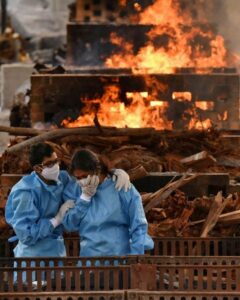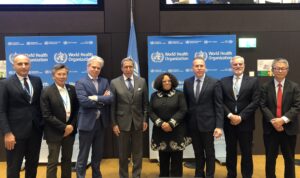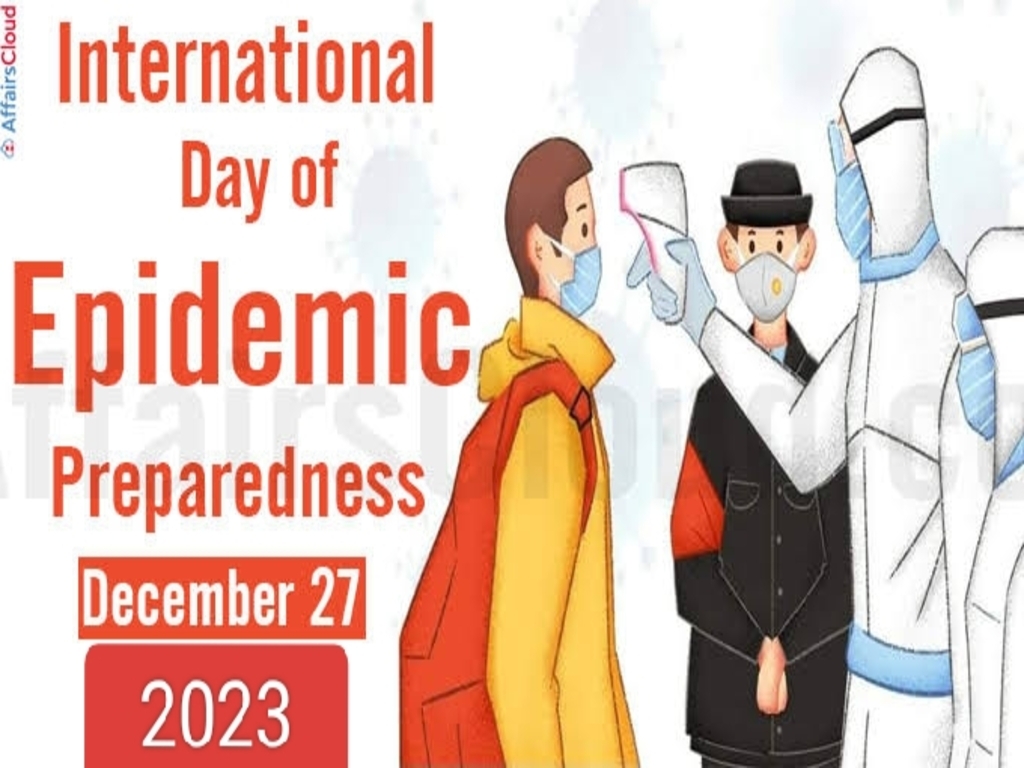International Day of Epidemic Preparedness 2023 in brief
The International Day of Epidemic Preparedness, observed on December 27, 2023, marks a collective effort to fortify our global defenses against health crises. In the wake of recent challenges, this day resonates with heightened importance, emphasizing the need for proactive measures and global solidarity in the face of potential epidemics.
International Day of Epidemic Preparedness is basically organised to advocate the prevention of, preparedness for and partnership against the highly infectious diseases.
For the first time , people realised the devastating effects of infectious diseases after the COVID 19 pendimic.

When Did International Day of Epidemic Preparedness Held ?

Therefore, the Day of international Epidemic Preparedness for the first time came into existence on 27th December 2020, which was called for by United Nations General Assembly.
Message By United Nations’s Secretary General Mr. António Guterres

COVID-19 is no longer the international public health emergency it was, but it is still circulating, and its devastating effects are still with us. Economic damage inflicted by the pandemic endures. Many healthcare systems are struggling. Millions of children are threatened by disease after missing out on routine childhood vaccinations. And three years after the first COVID-19 vaccines were developed, billions of people remain unprotected – overwhelmingly in developing countries.
When the next pandemic arrives, we must do better. But we’re not yet ready. We must prepare and act on the lessons of COVID-19.
Working together, the world must improve surveillance of viruses, strengthen health systems, and make the promise of Universal Health Coverage a reality. We must renounce the moral and medical disaster of rich countries hoarding and controlling pandemic healthcare supplies, and ensure everyone has access to diagnostics, treatments and vaccines. And we must strengthen the World Health Organization’s authority and financing.
These efforts are making progress. The High-level meeting on Pandemic Prevention, Preparedness and Response in September agreed a robust political declaration. This complements the negotiations on a pandemic accord in Geneva.
On this International Day of Epidemic Preparedness, I urge countries to build on this momentum by delivering a strong, comprehensive accord, focused on equity, by next year’s World Health Assembly in May.
Together, let’s act on the lessons of COVID-19, prepare, and build a fairer, healthier world for all.
Message from WHO Director-General Dr Tedros Adhanom Ghebreyesus
Need For The International Day of Epidemic Preparedness
There is an urgent need to have resilient and robust health systems, reaching those who are vulnerable or in vulnerable situations.
In the event of the absence of international attention, future epidemics could surpass previous outbreaks in terms of intensity and gravity. There is great need of raising awareness, the exchange of information, scientific knowledge and best practices, quality education, and advocacy programmes on epidemics at the local, national, regional and global levels as effective measures to prevent and respond to epidemics.
It is important to strengthen epidemic prevention by applying lessons learned on epidemic management and how to prevent the stoppage of basic services, and to raise the level of preparedness in order to have the earliest and most adequate response to any epidemic that may arise, and recognizing also the value of an integrated One Health approach that fosters integration of human health, animal health and plant health, as well as environmental and other relevant sectors.
International cooperation and multilateralism play an important role in the response to epidemics. We need to stress the significance of partnership and solidarity among every individual, community and State, and regional and international organizations, in all stages of epidemic management, as well as the importance of considering a gender perspective in this regard.
Who Plays An Important Role in International Day of Epidemic Preparedness ?
The United Nations system, in particular the World Health Organization, plays a pivotal role in coordinating responses to epidemics, in accordance with its mandate, and in supporting national, regional and international efforts to prevent, mitigate and address the impacts of infectious diseases and epidemics in accordance with the goal of advancing the 2030 Agenda.
We need to recognise the primary role and responsibility of Governments and the indispensable contribution of relevant stakeholders in tackling global health challenges, especially women, who make up the majority of the world’s health workers.
Learning from Recent Challenges
In the aftermath of recent global health challenges, the International Day of Epidemic Preparedness invites reflection on lessons learned. It prompts nations to assess and strengthen their healthcare systems, ensuring they are adaptable, well-equipped, and ready to face the evolving landscape of potential health threats.
Ways Forward
As we observe the International Day of Epidemic Preparedness in 2023, let us unite in our commitment to fortify our global defenses. By prioritising preparedness, fostering international collaboration, and recognizing individual responsibility, we pave the way for a healthier, more resilient world—one that can effectively navigate the complexities of potential epidemics


Greate information
My pleasure